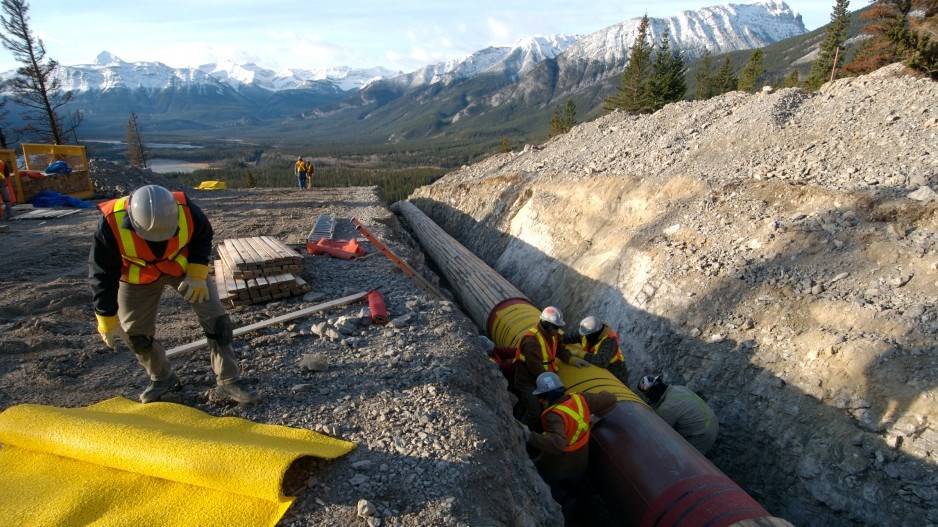For B.C.’s resource industries, a Liberal Party minority government will likely mean business as usual for most sectors, except one.
Justin Trudeau’s Liberal government won a minority Monday night, October 21, but in order to govern, will need the support of other parties to pass budgets and other key pieces of legislation, with the NDP the most likely ally.
Trudeau’s national carbon tax is safe, which means B.C. industries will not be on the uneven footing with industries in other provinces, as they would be if the Conservatives won and scrapped Trudeau’s national carbon tax.
Despite his anti-pipeline rhetoric, NDP Leader Jagmeet Singh does not have the political capital to kill the Trans Mountain pipeline expansion, say political pundits, especially given how many seats the NDP lost. But he could help kill one B.C. resource industry – salmon farming.
Singh’s party lost 15 seats in Monday’s vote, falling from 39 seats to 24.
Singh has opposed the Trans Mountain pipeline’s expansion. But the expansion is already approved. There is no vote pending in Parliament that would require NDP support, and even if there were, a Liberal minority government can count on the Conservative Party to vote in favour of the project.
Singh would need to make the project’s cancellation a condition of support for a Liberal minority government.
But he simply doesn’t have the political leverage to make such a demand, say political pundits, and the NDP does not have the war chest it would need to bring down the government and fight another election, especially given how poorly they fared Monday night.
“There’s no way he (Singh) can make the basis of supporting the government the most important single thing, symbolically, which would be to terminate TMX,” said University of BC political scientist Richard Johnston. “He has no mandate for that. The broad swath of MPs in the House, Conservative and Liberal combined, are onside with some version of getting oil to tidewater.”
A majority of Canadians support the completion of the Trans Mountain pipeline. An Angus Reid poll in June found 56 per cent of Canadians agreed the Trudeau government made the right decision in approving the pipeline’s expansion.
Canadians also now own the existing Trans Mountain pipeline, and Singh would have to justify putting them on the hook for $2 billion, which is how much in sunk costs that the government would need to write off, if the expansion were to be cancelled.
Western blue wave
While the Liberals may have won more seats overall, they lost most of Western Canada. The electoral map from Manitoba to the B.C. Interior is mostly blue.
Trudeau’s energy policies had a lot to do with that blue wave in Alberta and Saskatchewan — something Tim McMillan, president of the Canadian Association of Petroleum Producers (CAPP), said he hopes the Trudeau government will reflect on.
“When we look at the electoral map tonight — and it is quite stark — from the Manitoba-Ontario border west, potentially we may have a federal government that’s looking to correct that division in Canada,” McMillan said. “I think there’s an opportunity for the federal government to work with industries like ours, and others, to hold this country’s divisions together.”
“Westerners have grown tired of being seen as a problem to be dealt with rather than the source of solutions and prosperity that they see themselves to be,” added Stewart Muir, executive director for Resource Works. “This election outcome is a signal that it’s time to start listening to them.”
As for B.C.’s LNG industry, that is more of a provincial matter, and in any case, Singh has been decidedly opaque on where he stands on LNG. The B.C. NDP government supports the LNG industry, so Singh might not want to push agendas that would alienate his provincial counterparts in B.C.
Risk to fish farming
If there is one resource industry that could be in trouble in B.C., following Monday’s election results, it’s salmon farming.
The Liberals have pledged to phase out open-net salmon farms in B.C. by 2025 — a promise that puts 6,000 B.C. jobs in jeopardy. That pledge is one Liberal platform promise that has the full support of the NDP.
All NDP candidates in B.C., including Singh, have signed a Wildfirst pledge to phase out salmon farms by 2025.
During the federal election campaign, the Liberal plank on fish farms was largely a non-issue, except in places like Port Hardy, Port McNeill and Campbell River.
“That was the hot topic here,” Port Hardy Mayor Dennis Dugas said of one of the debates for the North Island-Powell River riding. “It’s going to have a devastating effect on our community.”
Several salmon farms operate in the area, and Mowi (formerly Marine Harvest) operates a fish processing plant in Port Hardy that employs 150 people.
Even if it becomes commercially viable to raise salmon on land, the timelines the Trudeau government has set for moving salmon farms from water to land are impossible to meet, Dugas said.
“The transition period — 2025 — is just impossible,” he said. “The whole industry would die on the coast.”
“This is a terrible situation for a number of Island communities, including many First Nations that do support net-pen salmon farms,” Muir said. “It’s a big disappointment to see the Liberals crushing rural communities to please a wealthy few, while also moving away from a position of principled scientific progress.”
“The Liberal platform... has caused stress and pressure on the families, professionals, scientists, biologists, doctors, sportsmen and conservationists who support and depend on this future-oriented industry,” said John Paul Fraser, executive director for the BC Salmon Farmers Association.



